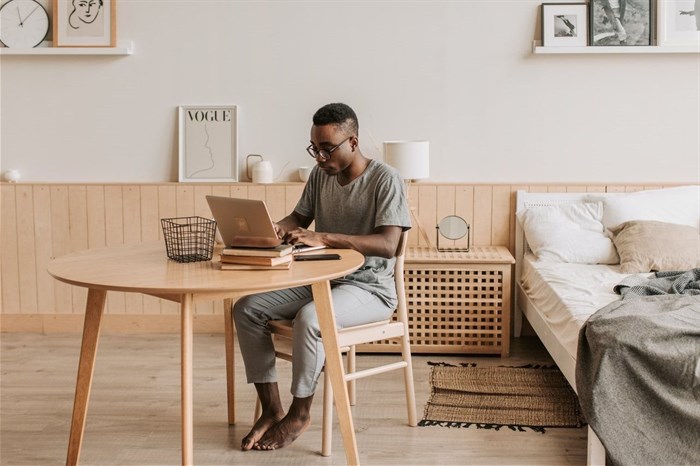What will it take to get you back in the office?
A new global research report by Steelcase, a global office design company, surveyed 58,000 people in 11 countries on what it would take to lure them back to the office has revealed some surprising - and some not so surprising - answers.

Image source: Vlada Karpovich from
PexelsLinda Trim, director at workspace design consultancy Giant Leap which represents Steelcase in South Africa, said: “For every CEO you hear from who loves their new, remote or hybrid setup, you hear from five who don’t. For many who sent their people home, it’s proving tough to get them back.”
“Businesses need to think differently about getting people back into the office. They need to think of it as earning the commute of workers who would rather stay home.”
“Offices need will need to compete with — and beat — the alternatives.”
So what do people say they want when they go back to the office?
- They want different things — based on age. “What we find is people who are under 30 years old are more likely to be in the office because they’re looking to create social connections and want to advance their careers,” said Trim. “People who are older than 50 are often back in the office because that’s what they were used to. But you see a big swathe of people in between — that 30 to 50 group — that are really enjoying working at home. They have to be carefully managed.”
- They want hybrid meetings to not suck. “We’re thinking more like a movie director than facility manager in designing offices now,” said Trim. “In the past, facility managers might just have video call facilities in a big vacuous room with poor acoustics and poor lighting. Now that experience has to be engaging. And it has to be easy to use, otherwise, people won’t do it. Workers don’t want to feel like they’re the odd person out based on where they are working.”
- They want to concentrate. “People are primarily concerned with the ability to work without distraction,” said Trim. “One of the things they really appreciated being at home during the pandemic was the ability to focus. So they want an equal amount of acoustic and psychological privacy to what they had at home.”
- They want to collaborate. People like to connect with colleagues, so how do we help facilitate some of those connections? Said Trim: “What we see is a proliferation of meeting room spaces, as well as ancillary informal settings, throughout the floor area. They used to be maybe 30% of the floor area pre-pandemic, we see a big shift to probably 50% to 60% or 70% in many offices now.”
- They want social support. “What the 30-to-50 year olds group are also telling us in the research is that they're really struggling with things like child care and elder care in their work-life balance,” said Trim. “One of the top things from our research came from women and their need for childcare on-site or someplace that they could get to quickly. Other on-site services like dry cleaning are in demand.”
- No surprise, they want a decent boss. You can have a beautifully designed space, but if the culture isn’t great, that will also be a detractor from people coming back to work. “People who say they want to work from home are often really saying that they don’t like their boss or their work culture,” Trim concluded.


























